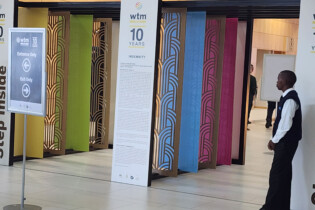Tourism is leading the way in some of the world’s most innovative sustainable energy initiatives. Energy-efficient upgrades to aircraft, the shift to renewable fuel for aviation and cruise liners, energy technology solutions in hotels, as well as countless other initiatives are placing tourism at the forefront of the clean energy transformation, and these initiatives are crucial for sustainable development.
This was the message of the Secretary-General of the World Tourism Organisation, Taleb Rifai. The United Nations World Tourism Organisation (UNWTO) has unveiled “Tourism & Sustainable Energy: Powering Sustainable Development” as the theme for this year’s World Tourism Day, which takes place on 27 September.
Guidelines are in place
Perhaps inhibited by economic constraints and logistical challenges, businesses and services in Cape Town are still making a gradual transition to more responsible tourism practice but the benchmark and the guidelines are in place to escalate this journey; both in the Responsible Tourism Policy and Action Plan and in the city’s commitment to recycling, conserving energy and transforming Cape Town into a highly sustainable and liveable city for all of its citizens.
Nils Flaatten, CEO of Wesgro says from a trade and investment perspective, renewable energy is one of the Western Cape’s biggest investment areas. “The Western Cape Provincial Government would like to generate 10% of the province’s energy needs through renewable sources by 2014. We have serious motivation to get the Cape’s energy combination right and we estimate that about 40% – 50% of wind technology projects and 15% of PV solar power projects will come to the Western Cape. This commitment is creating a market for companies in the renewable energy resources sector, as well as those in other sectors making use of these technologies, offsetting their carbon footprint and putting the message out to potential suppliers and travellers who are interested in fair-trade and responsible living.”
An increase in commitment
Cape Town Tourism CEO, Maritte du Toit-Helmbold, concludes: “Our World Design Capital 2014 status also means that we will have the chance to design new and improved ways of doing things that will create more responsible experiences for our visitors. Sustainable energy enterprises in tourism are known to create economic prospects and jobs, whether in tourism, energy or other sectors.
“We are seeing an increase in commitment by the tourism industry to accelerate the transition to responsible and sustainable tourism practises and leapfrog conventional options in favour of more sustainable solutions. However, much still needs to be done to reach the United Nations goal of achieving sustainable energy for all by 2030 and to position tourism at the centre of the clean energy economies of the future,” she says.
A practical “online energy school” tool, http://hotelenergysolutions.net/en/content/energy-school has been developed by the UNWTO to help hoteliers cut their carbon emissions and costs.




